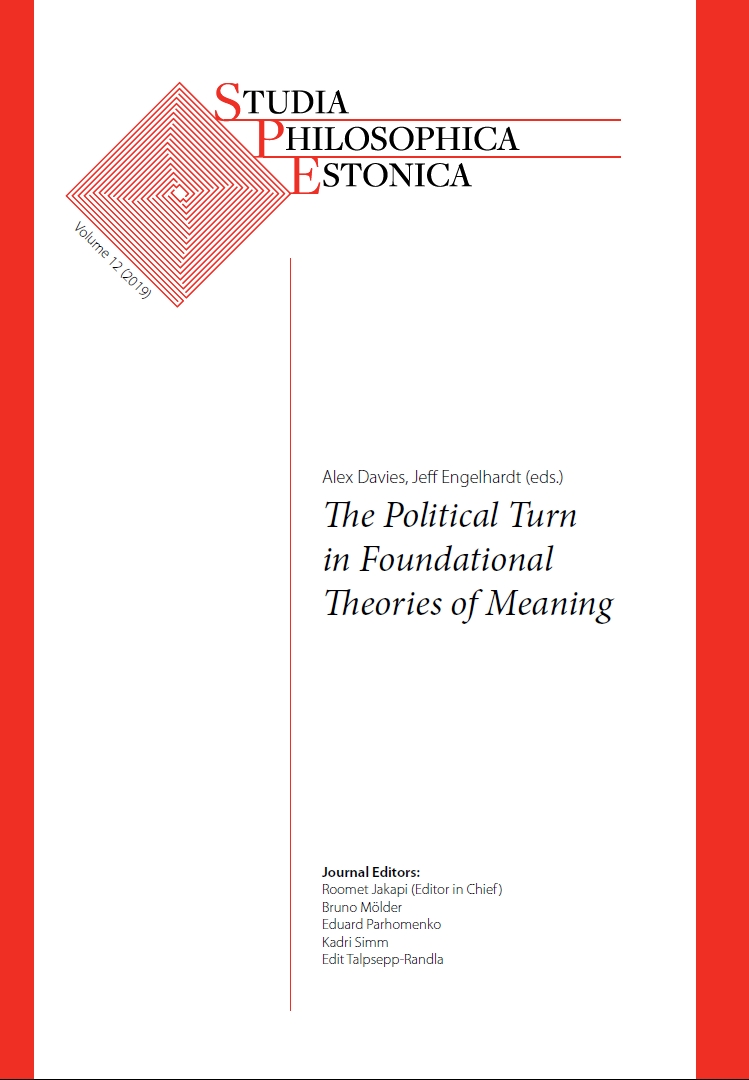Conceptual Engineering and Semantic Deference
DOI:
https://doi.org/10.12697/spe.2019.12.1.06Keywords:
conceptual engineering, semantic deference, amelioration, implementationAbstract
Many ameliorative projects aim at moral goods such as social equality. For example, the amelioration of the concept MARRIAGE forms part of efforts to achieve equal rights for the LGBT+ community. What does implementation of such an ameliorated concept consist in? In this paper, I argue that, for some ameliorated concepts, successful implementation requires that individuals eschew semantic deference, at least with respect to relevant dimensions of the concept. My argument appeals to consideration of the aims of conceptual engineers engaged in this type of ameliorative project: they seek conceptual change in order to contribute to the dismantling of oppressive social structures, institutions, and systems of belief. I argue that, for such aims to be achieved, it must be the case that individuals who come to endorse the concept do so for the right reasons---because they have gained an understanding of why the ameliorated concept is morally preferable to its ancestor. Once they have acquired such reasons, however, they are no longer correctly described as semantically deferential; they will treat moral reasons to employ the concept as overriding of semantic considerations.





